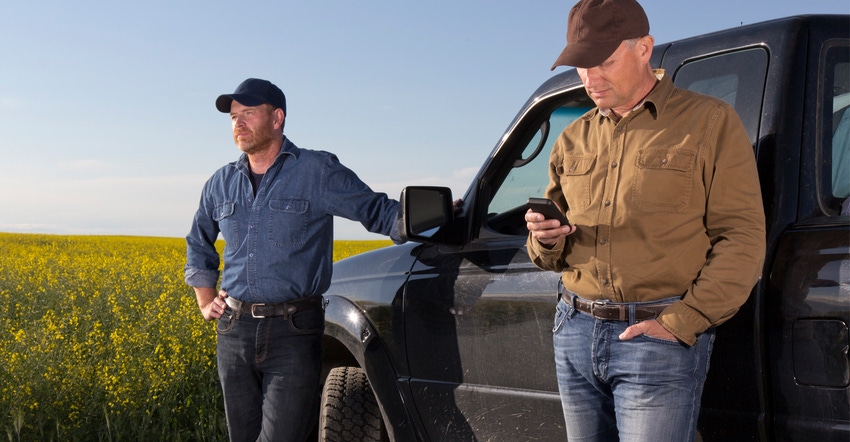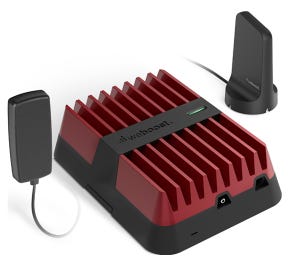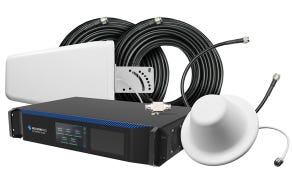November 12, 2021

Farmers are relying on their smartphones more than ever to keep up on the news, but also on where equipment is in the field and tracking other factors for the business. Yet, if you live in a remote area, cellular service can still be spotty, and major carriers aren't racing to expand their networks beyond cities very fast. What's a farmer to do?
"I think knowledge of cellular repeaters is surprisingly low," says Jon Mykrantz, vice president of sales for the enterprise division of Wilson Electronics. "People often think it's their phone's problem or the carrier. They don't always know the need to have a close proximity to a tower and what that entails."

KEEPING IN TOUCH: A system like this Drive Reach product from Wilson Electronics can be added to a car or pickup to amplify a cellphone signal. The unit includes an exterior antenna (right), the booster and the internal antenna. (Courtesy of Wilson Electronics)

He shares that sometimes you see people head for a window seeking a better signal, and that's not always the solution. If you're too far from the tower for your smartphone antenna to "see" the signal, then you're looking at one-bar, or worse, service on the phone.
A cellular repeater acts as a big antenna booster right next to your phone, pulling in that signal to boost communication. And the pieces of the system are relatively simple — an exterior antenna, an interior antenna and a signal booster. And while we simplify the process, Mykrantz notes that companies are making it easier.
"What's nice with our system is, we take the headache away from the end user," he says. "What we provide is the ability to capture the cell signal from outside and pull it in."
He explains that the Wilson repeater system is built to work with all major carrier signals, which are often on different frequencies. Company engineers building cellphone repeaters are ending the need to know which carrier you have: Just switch it on and let the machine find the right signal for your phone.
"There's an agreement with the [Federal Communications Commission] standards Part 20 that says you can put a repeater anywhere you want to, and as long as it doesn't interfere with other signals, it's accepted," he explains. "Not a lot of people are familiar with these; they think of the old cell booster you'd stick on your window."
More than a cellphone sticker
The industry has come a long way from those cell-boosting signals to systems that can be as extensive as three exterior antennas pulling in that signal and boosting it in a big building. "If you have a steel shop, we can get the cellphone signal inside," he says. "In buildings with a lot of glass, there's a problem with Low-E glass allowing a signal in. We solve that."

FOR BIGGER SPACES: If you're trying to stay connected in a larger space, you could invest in a commercial cellphone repeater. They cost more, but guarantee you stay in touch even in larger spaces — and steel buildings. This unit includes the external antenna with cables (top) and the internal receiver antenna and controls. (Courtesy of Wilson Electronics)

Mykrantz works on the commercial side of Wilson Electronics in a market where office buildings put in boosters when towers are too far away. You might not need a giant sophisticated system for that new farm shop, but one can be tailored to your needs.
"There's not a cookie-cutter answer to the kind of system we install," he says. "But speaking in generalities, if you have a large barn where you're housing equipment, you might look at a WilsonPro 1300 repeater system."
He explains that installation involves putting up an antenna at the building's highest point, connecting it to the control and adding the internal antenna — and you're up and running. A commercial system might cost $10,000, but there are different approaches, Mykrantz says.
On the consumer side, the company offers WeBoost products, like the system shown with this story. They offer the ability to provide multiple users in a car to have a better signal while driving.
No matter your need, a cell repeater may solve your connection issues. There are several companies in the market, but to learn more about how they work, you can visit wilsonelectronics.com.
About the Author(s)
You May Also Like






